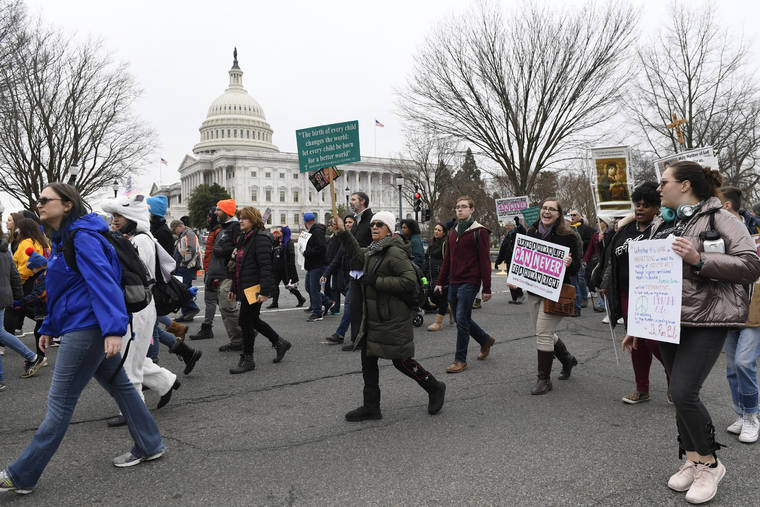Organizers of the March for Life, the anti-abortion movement’s preeminent annual event, are asking their supporters nationwide not to gather in Washington this year because of the COVID-19 pandemic and political unrest.
Instead, a small group of invited anti-abortion leaders will march Jan. 29, and the event will be livestreamed, March for Life’s president, Jeanne Mancini, announced Friday.
“Since we are in the midst of a pandemic which may be peaking, and in view of the heightened pressures that law enforcement officers and others are currently facing in and around the Capitol, this year’s March for Life will look different,” she said. “The annual rally will take place virtually and we are asking all participants to stay home and to join the March virtually.”
Tim Tebow, the football star, is still scheduled to make a keynote speech at a virtual gala taking place after the downsized march, Mancini said.
Mancini said she looks forward to holding the event in person next year.
The march has been held annually since 1974, one year after the Supreme Court’s Roe v. Wade decision that legalized abortion across in the United States. Even blizzards in 1987 and 2016 did not force cancellation, although turnouts were smaller than usual.
Local March for Life events also have been affected this year. State marches in Arkansas and Oregon have been indefinitely postponed, while a march planned in Tucson, Arizona, was converted into a car caravan dubbed the Road Rally for Life.
The annual National Prayer Vigil for Life, usually held the night before the national march at the Basilica of the National Shrine of the Immaculate Conception in Washington, will instead be a livestreamed event, with bishops participating virtually from across the U.S.
A year ago, President Donald Trump became the first sitting U.S. president to address the March for Life. Trump became a hero to many anti-abortion activists for appointing Supreme Court justices and other federal judges viewed as open to the possibility of repealing or weakening the Roe v. Wade ruling.
This year’s event will take place nine days after the presidential inauguration of Democrat Joe Biden, who is a staunch supporter of abortion rights.
———
Associated Press religion coverage receives support from the Lilly Endowment through The Conversation U.S. The AP is solely responsible for this content.


